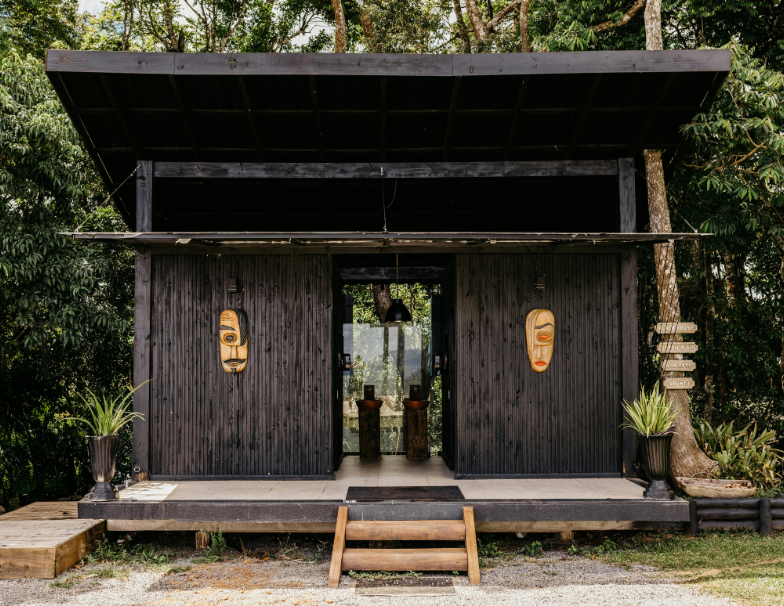How to Plan a Successful Corporate Retreat: A Complete Guide for Teams
.png)
Planning a corporate retreat can be one of the most rewarding ways to strengthen company culture, improve communication, and boost overall team performance. It’s more than just a break from the office — it’s an opportunity to realign your team’s goals, spark creativity, and build lasting connections that translate into better collaboration at work.
When done right, a company retreat helps reset priorities, reinforce values, and reignite motivation across your organization. But to achieve that, you need thoughtful preparation, a clear purpose, and strong follow-through.
Key Takeaways
- Define clear goals. Establish the purpose of your retreat and determine the outcomes you want to achieve.
- Choose the right people. Include a balanced mix of participants who can contribute ideas, energy, and perspective.
- Plan an engaging agenda. Blend strategic discussions with meaningful downtime and team-building activities.
- Select an inspiring venue. Choose a setting that enhances creativity, focus, and connection.
- Follow up with action. Turn retreat insights into measurable progress through post-event follow-through.
Why a Well-Planned Corporate Retreat Matters

A well-designed retreat can transform how your team collaborates, communicates, and performs. Stepping away from the daily grind allows people to think strategically, connect personally, and re-engage with your company’s mission.
Corporate retreats also help break down silos and encourage transparency between leadership and employees. They create space for honest dialogue, fresh perspectives, and renewed commitment to shared goals. For remote or hybrid teams, retreats are often the most impactful opportunity to reconnect face-to-face, build trust, and realign priorities.
Beyond productivity, retreats boost morale and employee satisfaction essential ingredients for a thriving workplace culture.
Budget Wisely and Strategically

Budgeting is one of the most overlooked yet essential parts of retreat planning. It’s easy to get caught up in location scouting or activity ideas, but a clear, realistic budget ensures every decision supports your retreat’s purpose.
Start by identifying your total available budget, then allocate funds by category. Common budget segments include:
- Venue and accommodations - This will often be your largest expense. Choose a place that balances comfort, accessibility, and amenities that match your goals.
- Transportation - Factor in travel to and from the venue, especially for teams flying in or commuting from multiple locations.
- Food and beverage - Plan for meals, snacks, coffee breaks, and any celebratory dinners.
- Facilitation or guest speakers - Investing in professional facilitation or experts can make sessions more productive and impactful.
- Team-building activities - Whether it’s an outdoor adventure, creative workshop, or wellness session, allocate funds for experiences that build connection.
- Materials and logistics - Include supplies, audio-visual needs, name tags, and other essentials.
Keep a 10–15% contingency fund for unexpected costs like last-minute changes or add-on activities.
And remember, strategic spending matters more than lavish spending. A modest retreat with clear focus and thoughtful programming will have far greater impact than an extravagant trip with no defined outcomes. A well-managed budget allows you to deliver value while maintaining financial responsibility.
Choose the Right Participants

Choosing the right attendees is as crucial as picking the venue. The mix of people sets the tone, energy, and outcomes of your retreat.
For leadership retreats, include key decision-makers to align on strategy. For company-wide events, aim for a balance of departments and roles to encourage diverse perspectives. Smaller groups foster deeper collaboration, while larger ones boost energy and inclusivity.
Consider bringing in a neutral facilitator to guide discussions and keep sessions productive. A diverse group ensures richer ideas, better problem-solving, and stronger team alignment.
Select a Venue That Inspires Connection
Your venue sets the stage for the entire retreat. It’s not just a backdrop, it’s part of the experience. The ideal venue supports both focused work and meaningful downtime.
When evaluating options, consider accessibility, comfort, and the tone you want to set. A nature-based location such as a lakeside lodge or mountain retreat fosters reflection and creativity. Urban venues, on the other hand, can be ideal for teams that thrive on convenience and high energy.
Think about:
- Meeting spaces that allow for both large and breakout sessions
- Reliable Wi-Fi and tech setup for presentations or hybrid participants
- Onsite catering or local dining options
- Nearby team activities such as hiking, kayaking, or cooking classes
The goal is to find a space that feels refreshing but still supports productivity, a place where your team can step away from the daily grind and see things differently.
Create a Balanced Agenda
An effective retreat agenda strikes the right balance between structure and spontaneity. Too many meetings can lead to fatigue, while too much downtime risks losing focus.
Start with your goals — each session or activity should tie back to them. Mornings are great for focused discussions, workshops, or goal-setting. Afternoons work best for interactive or outdoor sessions. Evenings can be reserved for informal networking, shared meals, or reflective conversations.
Consider mixing in different session types to keep energy levels high:
- Strategy discussions or brainstorming workshops
- Skill-building sessions or creative challenges
- Guided mindfulness or team wellness activities
- Fun team-building games or shared experiences
And always schedule unstructured time. Some of the best insights happen organically over coffee, on a walk, or during relaxed conversations between sessions.
Encourage Connection Through Shared Experiences
A corporate retreat’s magic often lies in the moments of connection, not just the agenda. Shared experiences foster trust and strengthen relationships, creating a foundation for collaboration back at work.
Think about what your team enjoys and how they connect best. For example, outdoor activities like group hikes or obstacle courses can build camaraderie, while creative workshops or cooking classes encourage playfulness and communication.
You can even weave your company values into these experiences. A socially conscious team might volunteer together, while a creative agency could do a design sprint or innovation challenge. The key is to make every moment purposeful yet enjoyable.
Communicate Clearly Before, During, and After
Clear communication keeps everyone aligned from start to finish. Before the retreat, share key details like schedules, logistics, packing lists, and goals to set expectations and build excitement.
During the retreat, keep everyone updated on daily plans and any changes. Assign a coordinator or small team to manage logistics so participants can stay engaged.
Afterward, send a recap of outcomes, next steps, and responsibilities to turn retreat discussions into real action.
Keep the Momentum Going
A retreat’s impact lasts only if you follow up. Without it, even the most inspiring experience can fade quickly.
Schedule post-retreat check-ins to track progress on action items and revisit goals regularly to see how insights are shaping your team. Share key wins or highlights in company updates to reinforce the retreat’s value.
Ongoing communication and accountability transform a single event into lasting change.
Measure the Impact

Evaluating your retreat shows what worked, what didn’t, and how to improve next time. Use both qualitative and quantitative measures.
Post-retreat surveys can gauge satisfaction, engagement, and outcomes, while tracking tangible results like new initiatives, improved collaboration, or progress on goals shows real impact.
Celebrate your team’s achievements to build momentum and reinforce the retreat’s value.
Final Thought on How to Plan a Successful Corporate Retreat
A successful corporate retreat is equal parts planning, purpose, and people. When thoughtfully designed, it becomes far more than a getaway, it’s a strategic investment in your company’s growth.
From defining clear goals and managing budgets wisely to designing a balanced agenda and fostering genuine connection, every element contributes to a shared experience that strengthens your organization.
So as you plan your next offsite, remember: a great retreat doesn’t just recharge your team, it realigns them. When people return inspired, connected, and focused, the impact echoes far beyond the retreat itself.
FAQs
- How far in advance should I start planning a corporate retreat?
Start planning at least three to six months in advance. This ensures you have enough time to secure your venue, organize travel logistics, and design a thoughtful agenda.
- What’s the ideal duration for a company retreat?
Most effective retreats last two to four days — long enough to accomplish goals but short enough to maintain energy and focus.
- How do I choose the right location?
Pick a venue that matches your retreat’s purpose. If creativity and reflection are priorities, choose a calm, nature-based location. If collaboration is key, look for venues with flexible meeting spaces and group amenities.
- Should we hire a professional facilitator?
Yes, especially for strategic planning or culture-building sessions. A facilitator keeps discussions productive and ensures every voice is heard.
You may also like
Unique spaces for your next offsite
Find distinctive venues for your upcoming corporate retreat.
Stay Updated with Our Insights
Get exclusive content and valuable updates directly to you.







